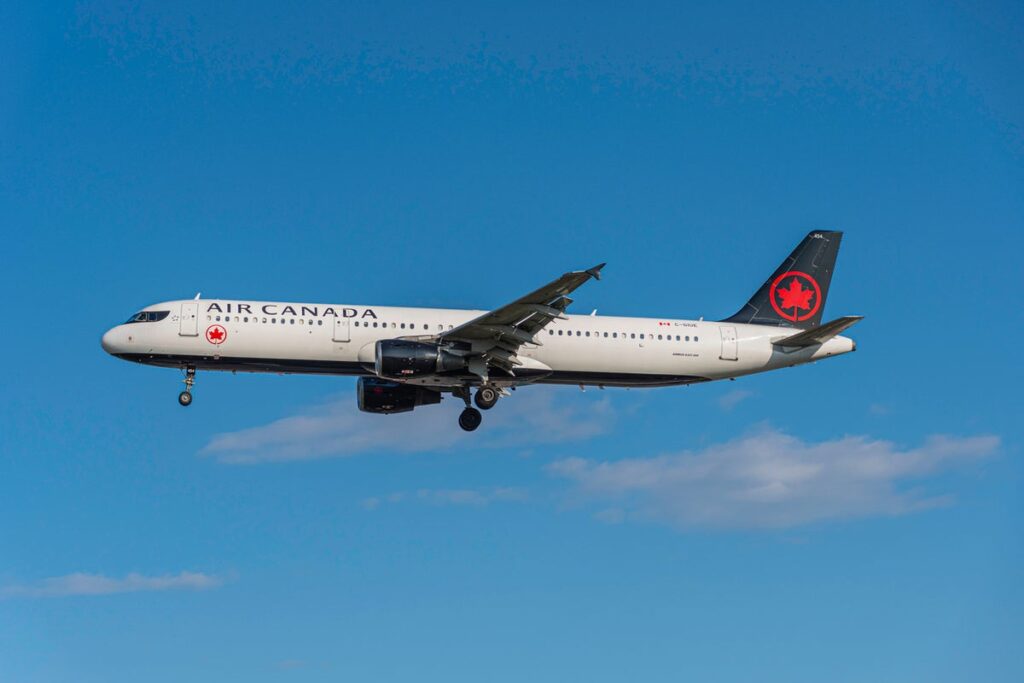Air Canada has recently announced significant changes to its luggage policy for economy fares, specifically targeting the carry-on allowances for its ‘Basic’ and ‘Comfort’ economy ticket holders. This decision has drawn criticism from transport officials, particularly from Canada’s Transport Minister, Anita Anand. Effective January 3, 2025, Air Canada will no longer allow larger carry-on items such as cabin suitcases, duffel bags, or large backpacks to be carried onboard for free, which has been a practice even for its lowest-priced tickets. Instead, passengers will face fees of $35 CAD (£19.40) for the first bag and $50 CAD (£27.70) for a second. Personal items, including purses and laptop bags, will still be permitted free of charge.
In addition to the changes in carry-on policies, Air Canada is altering its seating arrangements for basic fare passengers. Those who do not pay to select their seats will incur additional charges if they wish to change their randomly assigned seats. The fees for these seat changes will vary based on the specific seat chosen. However, one aspect of the policy change that alleviates some customer concerns is that passengers booking a Comfort ticket will now be allowed to check in two bags for free, an increase from the current allowance of one.
The announcement has sparked significant backlash from government officials, particularly Minister Anand, who expressed her dissatisfaction with the new policy, stating that such fees are unacceptable during a time when many Canadians are financially strained. She plans to convene a meeting with the CEOs of all Canadian airlines to address these changes. Anand has emphasized that the added costs disproportionately affect those who might already be struggling to afford travel. Her comments reflect broader concerns about the impact of extra fees on consumers.
Air Canada defended its decision by arguing that the changes align its pricing strategies with those of other Canadian airlines, asserting that these fees are not unprecedented within the industry. The airline noted they believe the adjustments are a competitive response to market conditions and expressed willingness to discuss these changes with government officials if needed. Nonetheless, Minister Anand firmly stated that while recognizing the business nature of such decisions, she remains “extremely disappointed” by the airline’s shift in policy, particularly given the economic challenges faced by many Canadians.
The pattern observed within Air Canada regarding the alteration of luggage fees is also seen across the airline industry. A similar approach was adopted by United Airlines in the United States, which requires basic economy passengers to pay additional fees for carry-on luggage. This trend indicates a growing normalization of such practices in the aviation sector, drawing concern from travelers and regulatory authorities alike. Industry experts warn that these changes could lead to greater dissatisfaction among customers, who may prioritize airlines based on the overall value offered rather than just the base ticket price.
As the travel sector continues to recover post-pandemic, stakeholders will be watching closely how these policies impact customer loyalty and satisfaction. While airlines like Air Canada seek to maintain competitiveness and profitability in a challenging environment, measures that increase costs for consumers may lead to more scrutiny and calls for regulatory intervention. The discourse surrounding Air Canada’s new fees underscores the delicate balance airlines must navigate between operational necessities, consumer expectations, and regulatory pressures as the travel landscape evolves.

